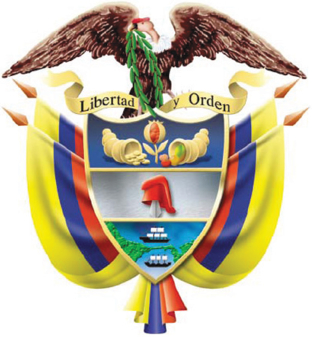2016 and to 12,237 in 2017. In 2018, 12,293 incidents of homicide were recorded. Incidents of kidnapping decreased from 288 in 2014, 213 in 2015, 207 in 2016, 195 in 2017 and 176 in 2018. Incidents of terrorism decreased from 763 in 2014 to 443 in 2015, 224 in 2016 and 123 in 2017. In 2018, there were 152 incidents of terrorism recorded. From January to November 2019, homicides decreased by 1.2% from 11,680 to 11,539, compared to the same period in 2018. From January to November 2019, kidnappings decreased by 47.1% from 157 to 83, compared to the same period in 2018, while incidents of terrorism increased by 16.6% from 145 to 169, compared to the same period in 2018.
Over the past two decades, Colombia has implemented various measures to address the violence associated with the guerilla movements, including bilateral negotiations, enactment of legislation to protect the victims of armed conflicts, increased investment and economic development in conflict areas and the introduction of social, political and economic reforms designed to improve living conditions, increase access to the political process and equalize the distribution of income.
On August 29, 2019, Ivan Marquez and Jesus Santrich (“Santrich”), former senior leaders of the FARC, announced that they would once again take up arms and return to conflict. On October 9, 2019, the FARC party, the successor of the guerrilla group, expelled all the guerrilla members that announced their rebellion. Several FARC dissidents, including Santrich, are requested in extradition by the United States for narcotrafficking and money laundering charges.
On September 30, 2019 the Presidential Counselor for Stabilization and Consolidation stated before a committee of Congress the Government’s continued commitment to the implementation of the peace agreements reached with the FARC. The Government has invested approximately Ps. 900 billion in projects related to the implementation of the peace agreements.
Other Domestic Initiatives
On March 6, 2018 the Government enacted Decree 437 of 2018, which establishes a public policy aimed at promoting religious tolerance and fostering religious freedom.
On April 17, 2018, the Government enacted Decree 660 of 2018, which seeks to provide comprehensive protection to all communities with the support and coordination of territorial entities. This decree was enacted within the framework of the peace agreement reached with the FARC.
On August 26, 2018, a referendum was held to decide on the implementation of certain anti-corruption measures. Seven questions were on the ballot. Although every single proposal received a 99% approval, none of the proposals met the minimum threshold of votes.
On December 28, 2018, Law No. 1943 (the “Financing Law”) was signed by President Duque. The Financing Law, which entered into force on January 1, 2019, aims to increase government revenues by approximately Ps. 7.5 trillion pesos. The Financing Law includes, among others, the following measures: (1) a new transactional tax on the sale of certain real estate; (2) a regular VAT for beer and for certain sugar drinks; (3) a 1% annual wealth tax on certain individuals for years 2019, 2020, and 2021; and (4) a tax on certain dividends at a rate of 7.5% or 15% depending on the nature of the recipient of the dividend. Further, the Financing Law strengthens the DIAN; increases the Republic’s ability to collect fiscal revenues; promotes formal employment; incentivizes large-scale investments that create more than 250 new jobs; and promotes incentives for investment in sectors of the Orange economy, including cultural and creative industries such as architecture, audiovisual arts, digital services, fashion, graphic and industrial design, handcrafts, music and software.
On October 16, 2019, Congress approved the Budget Law for the year 2020 with a total budget of Ps. 271.7 trillion, and an increase in investment of Ps. 7.3 trillion.
S-15

